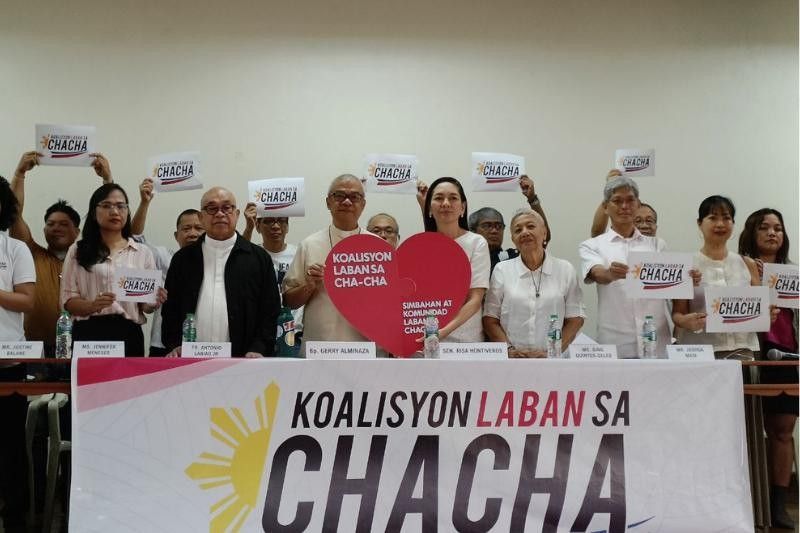Critics from the ranks of indigenous people, women, farmers/fishermen and the youth said the frenzy of changing the so-called restrictive economic provisions of the 1987 Constitution is meant to deflect from real nagging issues in society such as poverty, inequitable distribution of wealth and the administration’s desire to please the foreign investors over the needs of the disadvantaged Filipinos.
Freedom from Debt Coalition president Rene Ofreneo told media that while the Constitution is supposed to reflect the collective ideals of country, the voices of the poor, the disadvantaged and those in the fringes of society are being silenced in the country’s development.
“These voices being silenced are highlighting concerns like mass poverty, income inequality, maldevelopment, disability and social, economic and environmental concerns,” he said.
Government must clarify what is the real national agenda of change, of development that the country needs. The problem is that the voices of the majority are not being heard, Ofreneo told Business Mirror.
Business risks
Elias Jose Inciong, president of the United Broiler Raisers Association, said government’s admission that foreign investments can’t come into the country is a “dangerous formulation” as no investor would want to put money where 10% of the population want to work abroad and where firms are having problems surviving due to high costs, particularly energy.
He said China and Vietnam have successfully wooed investors without changing their limits to foreign ownership. Both have higher foreign direct investments compared to the Philippines.
The Constitution is always being made an excuse and the advocates of chacha, hyping on the country’s inability to get foreign investments because of economic restrictions.
Ofreneo said incentives and campaigns to liberalize the country did not attract as much foreign investments (as hoped for) nor did they improve the country’s development constraints.
Instead, the country continues to have poor infrastructure, high power costs, slow bradband connections, inconsistent regulations, and corruption. All these have been cited by American investors.
Changing the charter exposes further placing the interest of foreigners over those of Filipinos, he said, citing the National Economic and DEvelopment Authority study that showed the “continued bias in favor of an open economy which has failed the country miserably.”
Indigenous peoples ‘lose’ in Cha-cha
Last Friday, a network of IPs held a protest at Mendiola Bridge denouncing the further “threat to their ancestral domain and territories,” which they attribute to attempts to change the Constitution and allowing full foreign ownership of lands and industries, Inquirer reported.
Joining the protest action were: Katribu Kalipunan ng Katutubong Mamamayan ng Pilipinas; Sandugo-Alliance of Moro and Indigenous Peoples for Self-Determination, Bai Indigenous Women’s Network; Siklab Philippine Indigenous Youth Network; Takder (Cordillera Youth Movement for Democracy and Prosperity); and Kabataan para sa Tribung Pilipino.
Beverly Longid, national convener of Katribu, said proponents for changes in the Constitution would “not make a difference because the framework of Cha-cha allowing full foreign ownership of lands, resources and public services remain, which primarily affect the national minorities.”
Under the current situation, IPs are already burdened with harmful projects like Kaliwa Dam in Rizal and Quezon, the Gened Dams in Apayao, the Jalaur Dam in Iloilo and the Oceana gold mining operations in Nueva Vizcaya, the groups stated.
“These encroachments shall exacerbate and likely become more frequent under Cha-cha. We fear heightened militarization and increased violence against national minorities, often utilized to suppress local resistance. With Cha-cha, the plight of Indigenous and Moro Peoples will deteriorate, also impacting their access to essential services. Cha-cha threatens to perpetuate ethnocide,” they said.
A new group, Babae para sa Inang Bayang (Bida) network, a coalition of women’s rights groups, launched on Friday in response to the Charter change efforts by the Marcos administration, agreed with the issues raised by IPs groups.
#WeTakeAStand #OpinYon #ChaCha #
